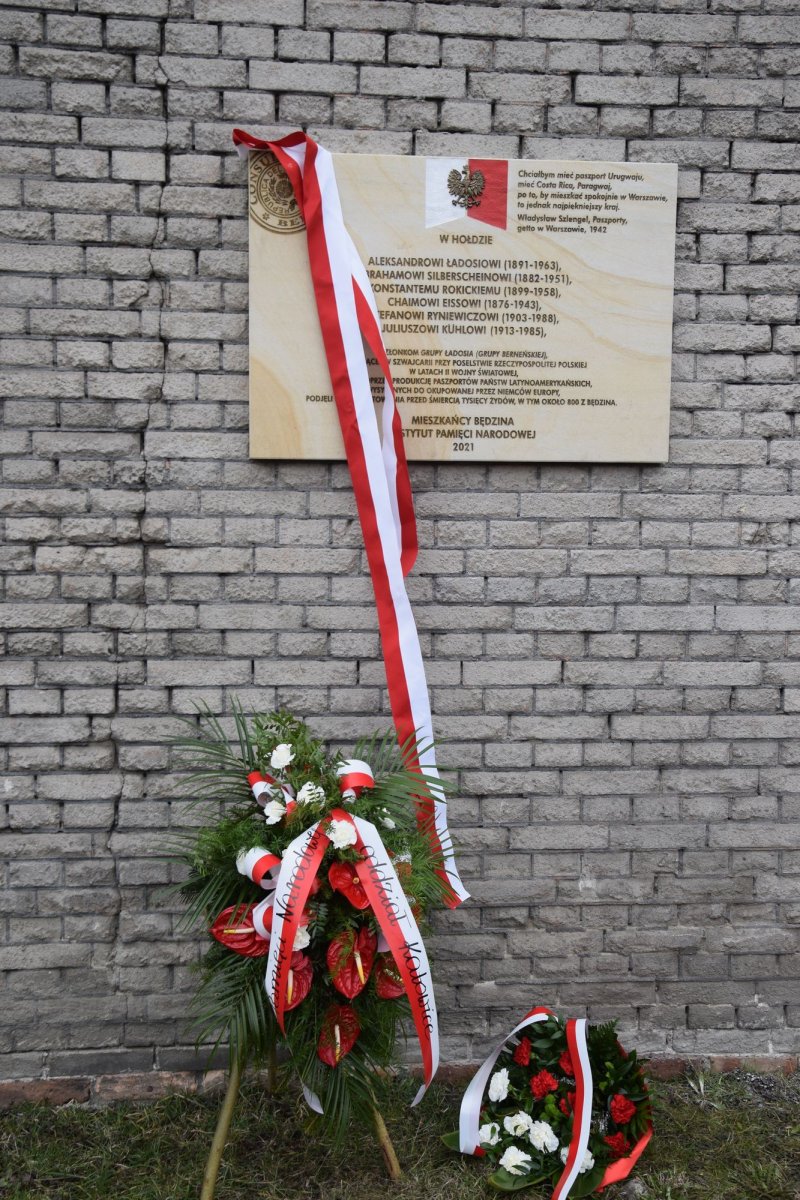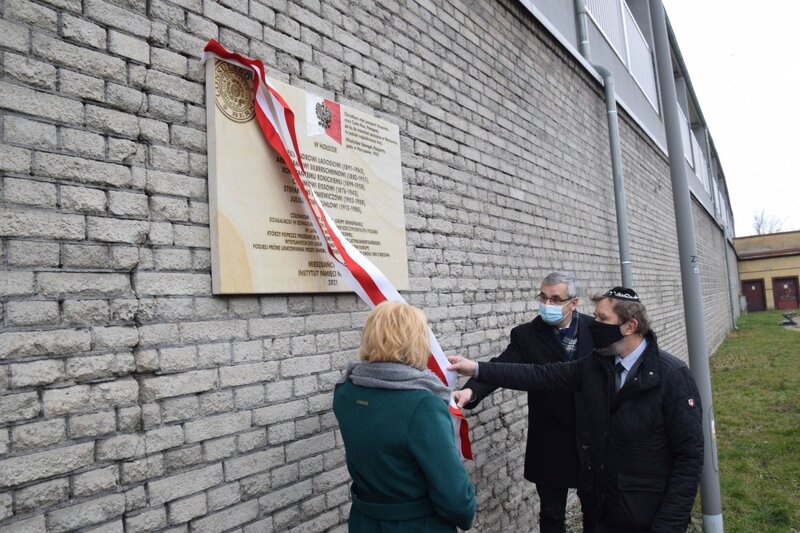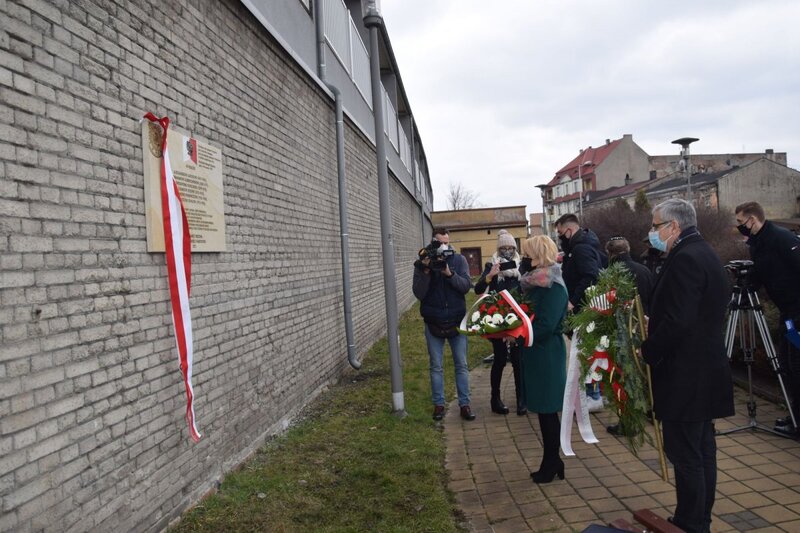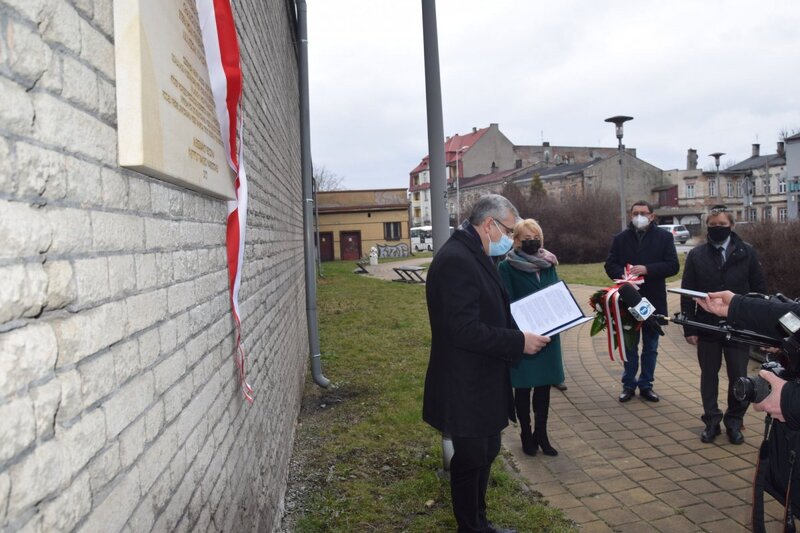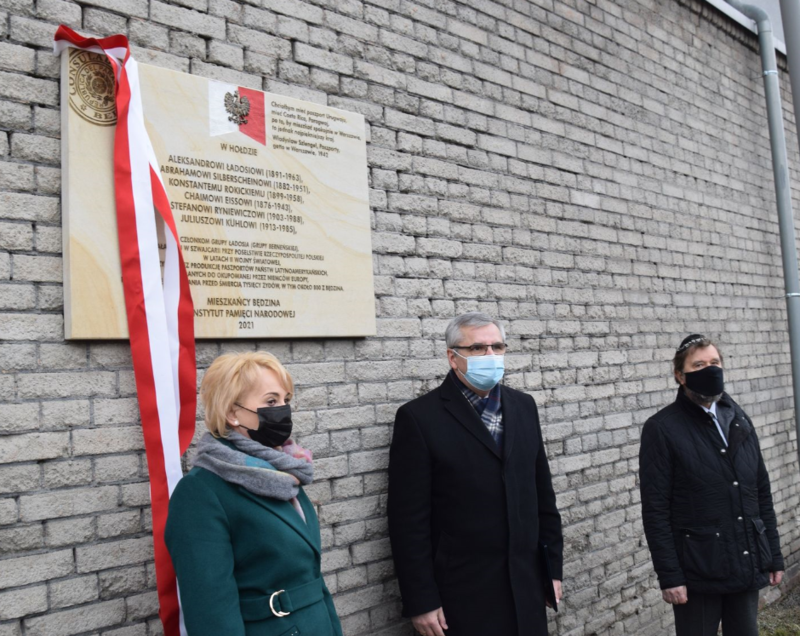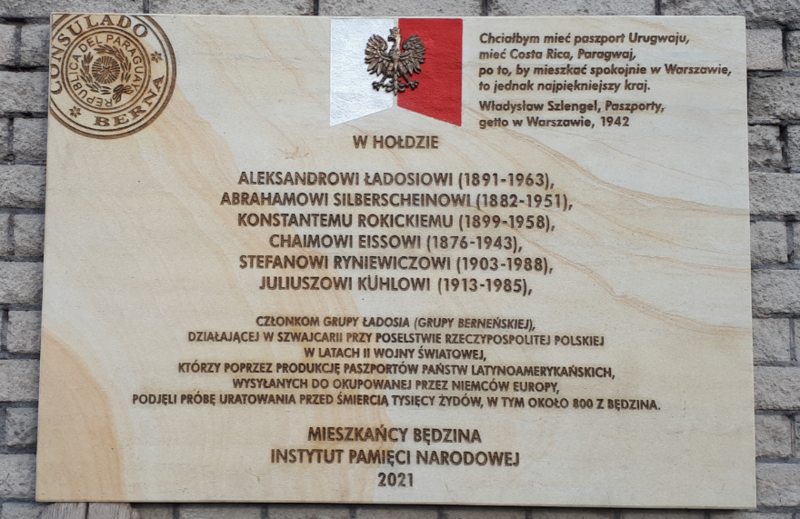The plaque, which is the first such commemoration of the Ładoś Group in Poland, was funded by the IPN’s Branch Office for Commemorating the Struggle and Martyrdom in Katowice.
However, it is not the first time the Institute is promoting the knowledge of the Ładoś Group: in 2018, it produced "Passports to Paraguay", a documentary written and directed by Robert Kaczmarek, and released it in early 2019. The film was followed by "Polmission. The Passports' Secrets", co-produced by the IPN, which elaborated on the largest and yet the most mysterious operations aimed at saving Jews during the war, presenting the further fate of those who managed to survive the Holocaust thanks to the efforts of Polish diplomacy and Polish intelligence cooperating with international organizations.
It is worth mentioning that the Polish Sejm, the lower house of the Polish parliament, adopted a resolution establishing 2021 to be the year of the Ładoś Group.
* * *
The members of the so-called “Ładoś Group” or ”Bernese Group”, operating during the war in the Polish Embassy in Bern, Switzerland, saved the lives of Jews by issuing forged passports for them. Polish diplomats and activists of Jewish organizations obtained passports from Latin American countries, which were then sent to Jews in occupied Europe. These were mainly passports from Paraguay, El Salvador, Honduras, Bolivia, Peru and Haiti, which prevented their holders in ghettos from deportation to German extermination camps. Instead, their owners were sent to internment camps, where some of them lived to see the end of the war.
The members of the group were involved in the production of illegal passports from as early as 1941 and continued their activities virtually until the end of the Holocaust. The “Ładoś Group” consisted of: Aleksander Ładoś, the Ambassador of the Republic of Poland to Bern, his Deputy Stefan Ryniewicz, Consul Konstanty Rokicki, as well as the Attache of the Embassy, Juliusz Kuehl. Their partners were two Jewish organizations - the RELICO Committee headed by Abraham Silberschein and the Swiss branch of Aguda Yisroel led by Chaim Eiss.
Some 8,000-10,000 passports are estimated to have been issued by the Ładoś Group, and 20-30% of their holders have already been identified (their list is available on the website of the Pilecki Institute).
It is worth stressing that among those saved were Polish, German and Dutch citizens of Jewish descent. Many of the Polish Jews came from the Zagłębie Dąbrowskie region, including such towns as Sosnowiec, Dąbrowa Górnicza and Będzin. So far, it has been established that during the war about 800 people from Będzin obtained the passports issued by the Bernese Group.
